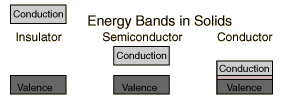If two very hot wires touch, they melt together to form one wire and electrons can flow between them.
If two cold wires touch, they do not melt together to form one wire but electrons can still flow between them (reference).
Does a metallic bond form between the two cold wires?
Is there a conceptual difference at the atomic shell/bonding level between electrons moving through a solid and electrons moving across two separate pieces of metal that are touching?
I thought metallic bonding by its very nature meant that it only existed in a single solid piece of metal. But if that's the case, how do electrons move between two separate pieces of metal if there is no bond between them?
I probably have some underlying assumptions wrong about all this, so feel free to point out anywhere my logic is flawed.

